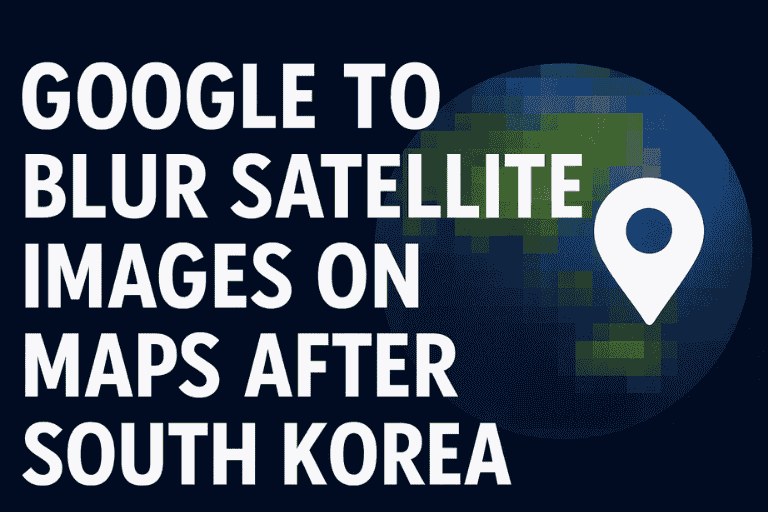In a breakthrough, Google has agreed to honor South Korea’s request to obscure sensitive satellite pictures on its mapping service. The decision concludes an 18-year legal battle between the tech company and the South Korean government on national security grounds.
Background of the Dispute
For nearly two decades, Google has competed to obtain detailed mapping data in South Korea to improve its Google Maps service.
The South Korean government has repudiated such requests under the pretext of national security, highlighting the risks that may arise should sensitive military and other strategically important areas be revealed to their communist neighbour.
Under the Geospatial Information Management Act, the export of survey data led by the government is prohibited, and aerial photographs that include national defense information are subject to classification .
The government’s top concern is that providing foreign companies with high-resolution map information may be used to assist its enemies in targeting military installations, particularly at a time of high tension with North Korea.
This sensitivity has caused South Korea to be one of the very few countries where Google Maps is not fully functional, including real-time navigation and high-resolution street view.
Google’s Concession
Google looks to map refer blurred government buildings. Google has agreed to bring censor satellite snaps of key military and Royal roosts in line with the official UK police state line.
The company, moreover, promised to delete geographic coordinates of security facilities and to try to purchase images of the peninsula from approved Korean third-party suppliers.
The gesture is considered as Google’s important concession in addressing South Korea’s security concerns while opening the door for the tech giant to compete with local navigation platforms .
Implications for Google Maps South Korea
The move to obscure sensitive satellite imagery will likely improve the viability of Google Maps in South Korea. Presently, the poor level of mapping information has made navigation difficult for residents and tourists.
Google to offer street view if securing map rights by US Government. Google seeks to offer more mapping services, such as real-time directions, and more detailed street view to improve the experience of users The company to be abiding by the security requirements by the US.
What’s more, there is a potential for a shakedown in the South Korean mapping market, which has traditionally been the preserve of local companies such as Naver and Kakao. The arrival of Google Maps with new bells and whistles may provide visitors with more options, and it may even kick-start some level of innovation in the business.
General impact on global mapping services
Google’s decision to follow South Korea’s mapping laws highlights a greater reliance on national security considerations in an increasingly digital world.
As nations become more wary of the risks of such sensitive data being exported, tech companies could come under greater pressure to comply with locally imposed rules.
This could also affect international mapping services especially in places with tight data sovereignty legislation.
Google’s action to blur its satellite mapping service in South Korea is a remarkable reversal for the company, which has long taken a strong stance on keeping the service available when national security is at play.
Google makes this concession in hopes of improving its service in South Korea and increasing competition with local mapping products. The case underscores the intricate entanglement between global tech giants and national security, and the model it may set for future dealings.


